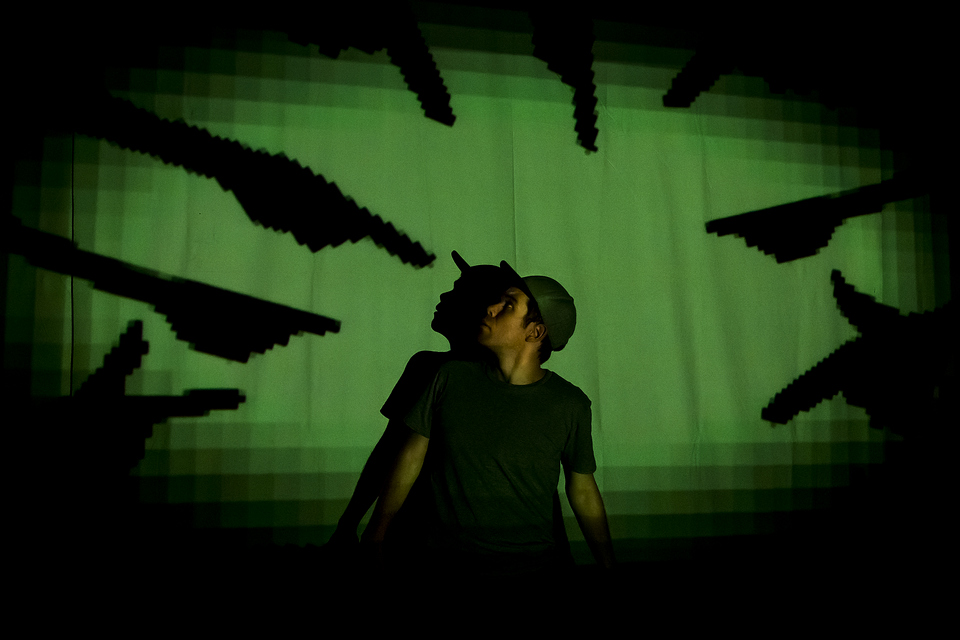Tröll is the seventh production by award-winning New Zealand company, Trick of the Light and the second of their shows I have seen. Their work is marked out by a satisfying aesthetic rigour that playfully interweaves visual languages and new writing to create a very complete on-stage world. In Tröll, that world is the 90s, specifically the 90s as experienced by 12-year-old Otto, coming to terms with life in a new house with an old family member, in a new part of New Zealand.
As an exuberant monologue on the joys and lows of adolescent adventures in the new playground of the internet, the show is sweet and funny, grounded in a detailed and affectionate performance by company director Ralph McCubbin-Howell’s that walks (and bounces) just on the right side of naivete. Otto is a proud member of nerdish chatroom The Round Table where they discuss important historical ‘facts’ of the time, attempting together to shed some light on the Dark Ages. The chat room is a sanctuary, at least for a little while, from the bullying Otto’s experiencing IRL (‘in real life’ as he proudly explains to us) but when that sanctuary is invaded he must turn to his aged ‘Viking’ grandmother to gnomically expand his understanding. It is her whose arrival due to ill health imposes the move that triggers the story, and she who first characterises the vulnerability plaguing him as a Tröll.
The company have riffed on these three languages – of the early internet, Medieval history and Nordic myth – to create a rich palette for their storytelling. Anchored in a small illuminated square of stage, a single desk, a flight case, an operating table and a lot of extended looping wires, mythic worlds behind walls and down cables are conjured. The material is highly identifiable and originally told: physicality, miniature worlds, arresting imagery (including a very pleasing use of a vaper), handheld projection, shadows and puppetry are all deftly spun together. The company have found myriad surprising and enchanting ways to animate Otto’s world view, and the 90s aesthetic is a very effective bridge between history and the now, the familiar and the strange – as well as being bang on trend.
Because now, of course, the days of dial-up, of spiky acronyms and pixelated characters seem in some ways like the Dark Ages themselves. In its final moments, the show bursts out of its magic realism memoir into something more sober and nuanced: a comment on the weave of childhood into our adult lives, and the threads that link together the stories that we tell to the metaphors we share.


